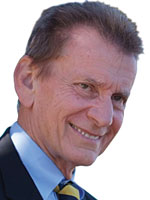Selecting the right expert for your case
A lifetime of trial experience suggests some simple-to-follow rules on selecting your experts
In selecting experts, always remember that the ultimate objective is to persuade the jury as to the nobility of the cause – in other words, get them to vote for you. How can you do that other than direct proof? Clearly, one of the most important ways is through an expert. Experts become our voice – the voice of the evidence, the voice of the evidence as we wish it to be seen – and selection of the expert is all important. I offer herein a set of do’s and don’ts that I would follow in the selection process.
Do’s
- Select an expert with the expertise for this particular case. A fancy resume of an expert who is not really directed to the issue that you have in your case will be a telling point for cross exam by the defense. Hopefully, you will find an expert who has actually had an issue very similar to yours that will be of great help to you. Look for that kind of person.
- I like to select an expert who is likeable and who has the gift of persuasion and communication. If I do not like an expert as a person, I feel that a jury will have a problem in quite the usual situation. They should be able to communicate and speak clearly.
- In selecting an expert, it is all important that you select an expert early and you select someone who has the timing and the ability to help you throughout the case, discovery, production, preparation for trial and trial.
- Select people on the basis of how they will help you across the board – not just selecting the usual white males. Use of women and minorities as experts is ever increasingly important and very helpful to your cause, especially with jurors who are also not white males.
- Select experts who also testify equally between the plaintiff and defense, or at least do some work for the defense to take away that collateral attack issue.
- Select experts who have worked for the defendant in the case if it is a big corporate defendant; or who have worked for the defense lawyers to again withstand collateral attack on the neutrality issue.
- As far as to how to select and where to find the names and such, the best way to go is to use trusted recommendations you know – lawyers who have handled cases that are similar and have worked with the expert.
- Jury reports (juryverdictalert.com, verdictsearch.com) on trials in which the expert has testified successfully are another solid foundation for the selection process. The CAALA listserve is a great source of potential information on the selection process.
Don’ts
- Don’t select someone who is subject to fatal collateral attack. For example, if the expert has written an article or given a speech that is directly counter to what you are going to be saying in your case, avoid them.
- Don’t select someone whom you have to give the opinion to, rather than the opposite. I never like to have to argue with my own experts to give them opinions they do not hold.
- Select someone who can make the necessary concessions on cross exam on points that are too obvious not to concede – obviously, honesty is more important than otherwise.
- Don’t select someone as your expert whom you do not trust or whom you do not personally like. You need to feel a conviviality and a trust with this expert that you are going to be working with over the months; that you are going to bank your trust in for your case.
- Don’t select a non-communicator personality type of an expert when you are going to expect that person to be your communicator on a key point in your case.
- Don’t select an expert just on the cost factor alone. Plaintiff’s lawyers who have to advance costs are always very wary in terms of the costs factor. It is something to consider, but any plaintiff lawyer who takes a contingency fee case where you promise to advance the costs has an obligation to advance those costs and do what is necessary to win. If you sign up a client, follow through with your agreement and go in to win.
- Don’t fail to consider selecting someone who has done defense work in the past. On a number of occasions, I have been able to have experts who have done heavy defense work before rendering an opinion in my case that becomes ever more impressive, particularly for settlement with insurance companies.
- Don’t select someone who, from the moment you reach them, gives you the impression they do not have time to talk to you and will not have time to put into the case – they are too important and too busy. Select someone who is able to deal with you and give you what you need. You are going to have a long and important ride with them, so make it as happy and as useful a ride as you can.
Happy trails on your case.
Browne Greene

Browne Greene is a founding partner in the Santa Monica firm of Greene Broillet & Wheeler, LLP and is one of the nation’s preeminent trial attorneys. As a trial lawyer, he champions plaintiffs in the areas of business law, civil rights, municipal liability, products liability, personal injury, work place incidents, medical malpractice, and wrongful death, as well as entertainment and performing arts accidents.
Copyright ©
2026
by the author.
For reprint permission, contact the publisher: Advocate Magazine
